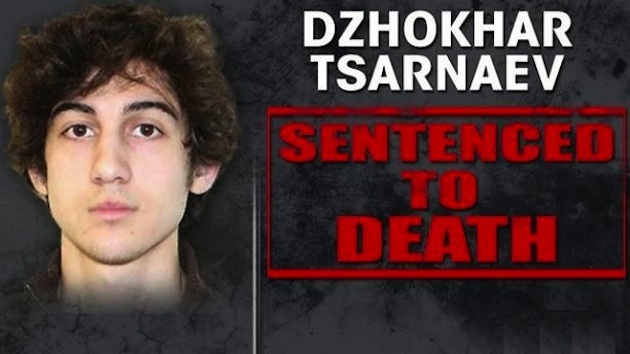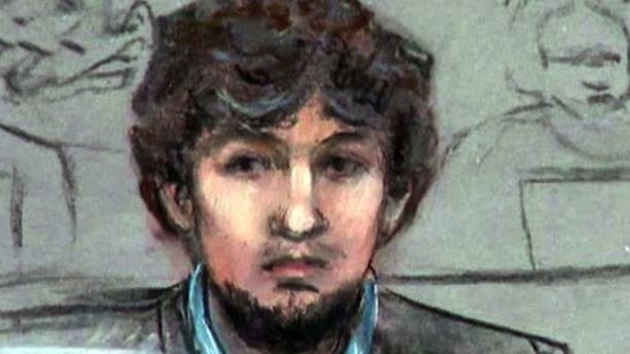

Dzhokhar Tsarnaev, the last surviving Boston Marathon bomber, has been sentenced to death. (Photo: FOX News)
Dzhokhar Tsarnaev, the 21-year-old Boston Marathon bomber has been sentenced to death in a unanimous decision for his thirty-count convictions on April 8. Seventeen of the thirty counts carried a possible penalty of death.
Tsarnaev showed no emotion as the jury announced his grim fate, which is death by lethal injection. He had has hands clasped in front of him as he stood facing the jury.
Prior to the announcement of the jury’s decision, a series of aggravating and mitigating factors had to be read and considered. But, in the end, the jurors found Tsarnaev guilty of several aggravating factors and concluded his role in the bombing was “heinous, cruel and depraved” on eight counts. Among those aggravating factors was the death of 8-year-old Martin Richard, the youngest victim of the bombing.

A court artist’s rendering of Dzhokhar Tsarnaev, the last surviving Boston Marathon bomber, as the verdict was read aloud.
After 14 hours of deliberations over three days, the jury found he committed an act of terrorism that involved substantial planning and premeditation.
It is expected that he will appeal, which will either hold up or even possibly reverse the sentence. Tsarnaev will be the 63rd prisoner on federal death row and the average waiting time before sentencing is roughly 15 years. However, Oklahoma bomber Timothy McVeigh spent just four years on death row before he was executed. McVeigh was given the death penalty in 1997 and was executed in 2001.
The 2013 Boston Marathon bombings killed three people and injured more than 260 others when two pressure-cooker bombs were detonated near the finish line of the Boston Marathon. Tsarnaev was also convicted of killing a Massachusetts Institute of Technology police officer days later during a massive police manhunt for him and his brother, Tamerlan.
Tamerlan was killed in a shoot out with the Boston Police Department and the FBI, which ended in Dzhokhar escaping as he ran over his brother’s body. The defense attempted to save Tsarnaev’s life by claiming Tamerlan was to blame for the radicalization of his younger brother. In the end, the jury wasn’t buying.






